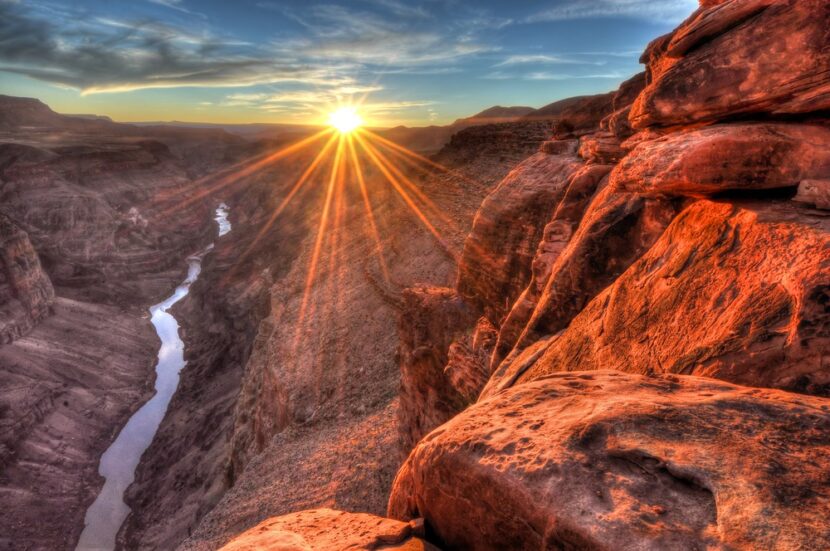FLAGSTAFF, Ariz. — A new report by a federal watchdog outlines a history of harassment on river trips through Grand Canyon National Park in which male park employees allegedly propositioned female colleagues for sex, touched them inappropriately and made lewd comments.
The report obtained by The Associated Press comes after 13 current and former Grand Canyon employees filed a complaint in September 2014 saying women had been abused over 15 years. It was released Tuesday by the Department of the Interior’s Office of Inspector General.
About a dozen people have faced disciplinary action for sexual misconduct since 2003, ranging from a written reprimand to termination. But investigators say those actions are inconsistent, and many alleged incidents go unreported or aren’t properly vetted by supervisors.
One longtime human resources official interviewed by investigators said a “laissez faire” attitude exists of “what happens on the river, stays on the river.” Grand Canyon officials until recently allowed river rafters to bring alcohol on the trips.
A National Parks Service spokesman said the agency has zero tolerance for the behaviour cited in the report.
“No NPS employee should ever experience the kind of behaviour outlined in the report, and it is even more disappointing because previous efforts to change the culture at the River District of the grand Canyon failed to improve working conditions,” NPS spokesman James Doyle said in an email. He said the agency is mulling more changes, but did not detail those changes.
Grand Canyon National Park manages 280 miles of the Colorado River, providing emergency and medical services, as well as guiding researchers, politicians and students on a dozen river trips per year. Co-workers spend lengthy stretches together within the canyon’s towering walls, camping on the river banks and cut off from the rest of the world. A satellite phone typically is available for emergencies only.
The report does not identify any of the park employees, boatmen or contract workers by name. It focuses solely on trips run by Grand Canyon National Park. Commercial and private, or self-guided, river trips are conducted through different systems.
Incidents of sexual harassment on the national park trips included a boatman photographing an employee under her skirt, a supervisor grabbing a contract employee’s crotch and park employees twerking during a dance party as a river trip was wrapping up, according to the report.
The Park Service’s Intermountain Region director Sue Masica, Grand Canyon Superintendent Dave Uberuaga and his deputy, Diane Chalfant, told investigators they were well aware of the history of alleged sexual harassment on the river and said the agency tried to change the culture. Masica said alcohol consumption seemed to play a part.
A change in the river district’s standard operating procedures in May 2014 restricted the use of alcohol to off-duty hours but was amended last year to bar alcohol at any time during river trips. Everyone also has to listen to a briefing on proper behaviour. The person who is managing the project on the trip now can remove participants who aren’t following the rules.
The Office of Inspector General said it had not conducted any similar investigations at other national parks.
An investigation conducted by the Interior’s Equal Employment Opportunity office in 2013 looked into some of the same sexual harassment complaints outlined in the 2014 letter. Uberuaga said he did not consult with human resources or park managers about disciplining employees named in that report because it indicated that any failures weren’t “actionable.” A human resources officer with the Park Service’s Intermountain Region said the EEO investigation had several issues that required corrective action.
In separate management advisories, the Office of Inspector General criticized the Park Service on its hiring practices and for not safeguarding the identities of the people who filed the complaint in 2014. The letter was released to at least two people who were subjects of the complaints.
“NPS must respect the confidentiality of individuals who report sexual harassment by not revealing their identities to others who do not have a legitimate, work-related need to know,” wrote Deputy Inspector General Mary Kendall.
The Park Service also allowed a former Grand Canyon river district employee who resigned after being disciplined for repeated sexual harassment and misconduct to work elsewhere in the agency, including as a volunteer on a 2010 river trip, Kendall said.
